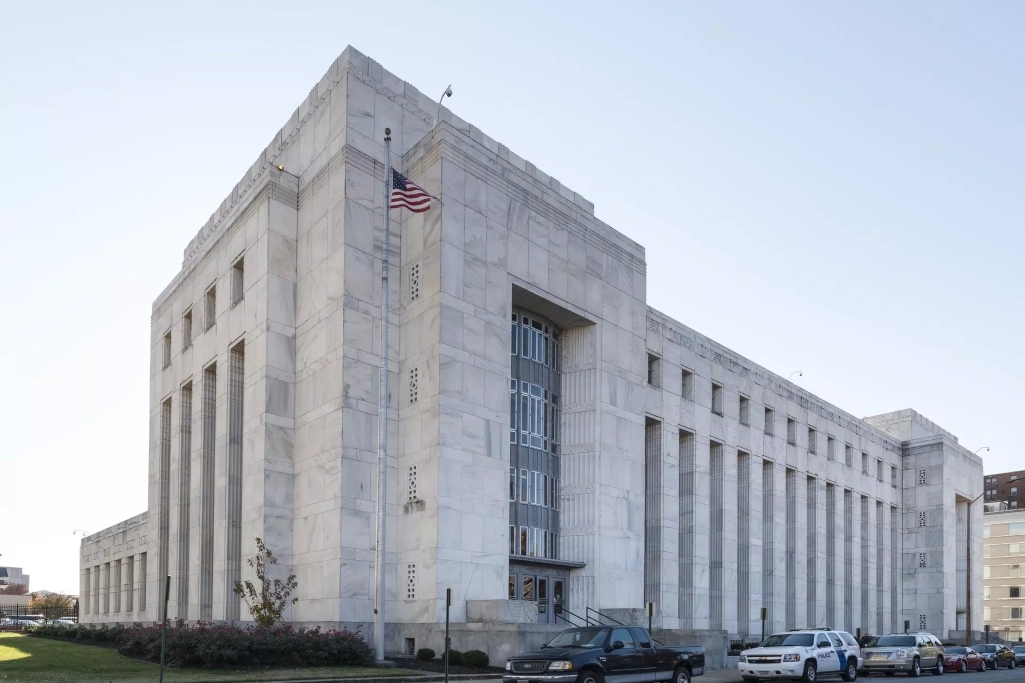The Southern Baptist Convention’s ethics entity called July 26 for the U.S. Senate to oppose legislation that threatens to gain enough Republican support to codify same-sex marriage into law.
In a letter to all senators, Brent Leatherwood, acting president of the Ethics & Religious Liberty Commission (ERLC), urged them to vote against the Respect for Marriage Act (H.R. 8404). The legislation would repeal the 1996 Defense of Marriage Act (DOMA) and require federal and state recognition of same-sex marriages considered legal in the jurisdiction where they took place.
The U.S. House of Representatives approved the measure July 19 in a 267-157 vote, with 47 Republicans joining all the Democratic members in support. If enacted, the bill would essentially place into federal law the U.S. Supreme Court’s 2015 Obergefell v. Hodges decision that legalized gay marriage, though critics warn it could go beyond that ruling to permit recognition of other types of unions.
The Respect for Marriage Act faces the challenge of needing 60 votes in the Senate to overcome a filibuster and gain a floor vote, but several Republicans have indicated their willingness to support it. A survey of senators’ offices published by CNN showed five GOP members will vote for the bill or are likely to do so. If all Democrats support the legislation, only 10 Republicans are needed to cut off debate so a vote on the proposal can occur.
In conveying that the ERLC is “firmly opposed” to the legislation, Leatherwood told senators, “Marriage is an institution created by God, not by man. No individual or government has the authority or ability to supersede its design.”
He wrote, “Marriage requires the specific union of a man and a woman for life (Gen. 2:24). Attempts to misapply or expand the term beyond these distinct parameters go against God’s purpose and will lead people astray from what was meant for our flourishing.”
Religious freedom could be threatened and the definition of marriage could be expanded even beyond same-sex unions if the legislation is enacted, Leatherwood warned.
The bill “raises serious religious liberty concerns for individuals and organizations who maintain [the one-man, one-woman] view of marriage and are in contract with, funded by, or working jointly with the government,” he wrote.
“It also is unclear whether the [legislation] would codify federal recognition to civil marriages that go beyond the scope of two individuals in states that allow it,” Leatherwood wrote, citing the example of Massachusetts cities that legally recognize polygamous relationships. “Given that there’s no limiting principle in this bill, it could potentially include other marriage definitions that a state chooses to adopt.”
The issue “transcends electoral politics,” Leatherwood said in his letter. “For our churches, this is about human flourishing and love for our neighbors.”
Hannah Daniel, the ERLC’s policy manager, told Baptist Press, “Regardless of how quickly our culture changes, we hold fast to the reality that marriage—the union of one man and one woman for life—is an institution created by God for our good and for the flourishing of our society.”
This bill “seeks to codify into law the redefinition and expansion of what marriage is designed to be and provides little protection for those who seek to uphold God’s design,” she said in written comments.
After a survey of all 50 Republican senators, CNN reported July 21 that five said they will vote for or are likely to vote for the legislation: Sens. Susan Collins of Maine; Ron Johnson of Wisconsin; Lisa Murkowski of Alaska; Rob Portman of Ohio; and Thom Tillis of North Carolina.
Fifteen GOP senators indicated they are undecided or did not signal support for the bill, while eight said they will vote against it, according to CNN. The news network reported 22 senators had yet to respond to its requests.
Democrats pushed for passage of the Respect for Marriage Act after the Supreme Court’s June 24 reversal of Roe v. Wade, the 1973 opinion that legalized abortion nationwide. Supporters of same-sex marriage expressed concerns a future high court might also overturn the Obergefell ruling and called for a legislative remedy to try to prevent such an action.
In promoting passage of the proposal, Democrats cited language by Associate Justice Clarence Thomas in an opinion concurring with the Supreme Court’s decision that overruled Roe. The high court “should reconsider” all precedents regarding “substantive due process,” including Obergefell, Thomas wrote.
In the majority opinion, however, Associate Justice Samuel Alito denied the ruling to overturn Roe would affect the justices’ decisions in other cases. “[W]e have stated unequivocally that ‘[n]othing in this opinion should be understood to cast doubt on precedents that do not concern abortion,” he wrote. Associate Justice Brett Kavanaugh reiterated that view in his own concurring opinion.
Under the judicial doctrine of substantive due process, specific rights that are not spelled out in the U.S. Constitution are still considered protected.
Although same-sex marriage is the focus of consideration regarding the Respect for Marriage Act, the bill’s language prohibits denial of the recognition of marriage between two people on the basis of their “sex, race, ethnicity, or national origin.” The Supreme Court struck down state prohibitions on interracial marriage in its 1967 Loving v. Virginia decision.
By enacting DOMA in 1996, the federal government defined marriage as only between a man and a woman and protected the right of a state not to recognize a same-sex marriage that occurred in another jurisdiction. President Clinton signed DOMA into law after it gained passage unanimously in the House and by 97-3 in the Senate.
(EDITOR’S NOTE – Tom Strode is Washington bureau chief for Baptist Press.)


